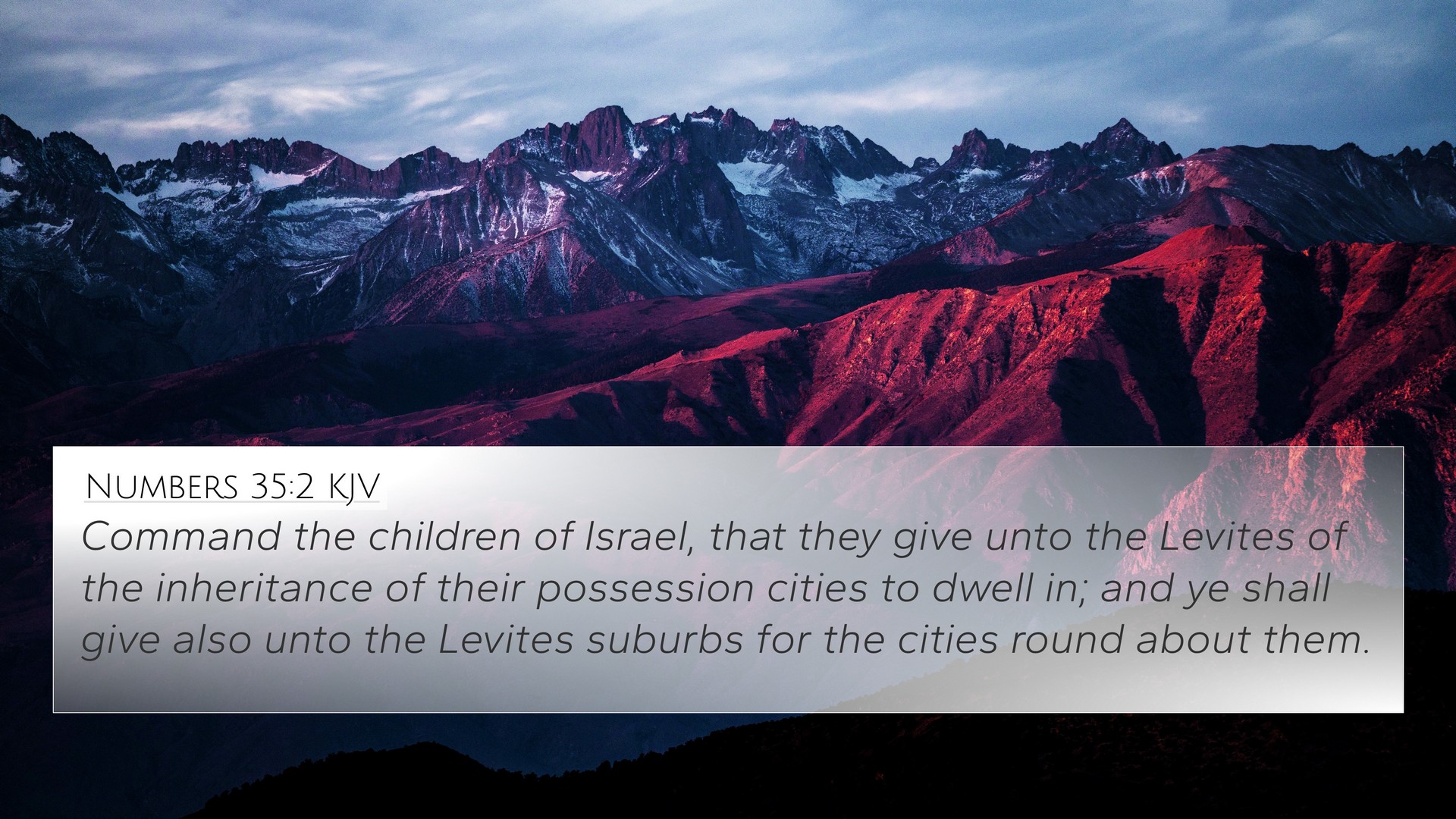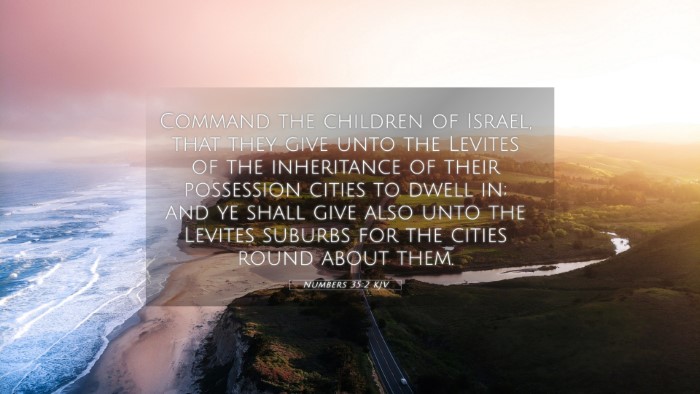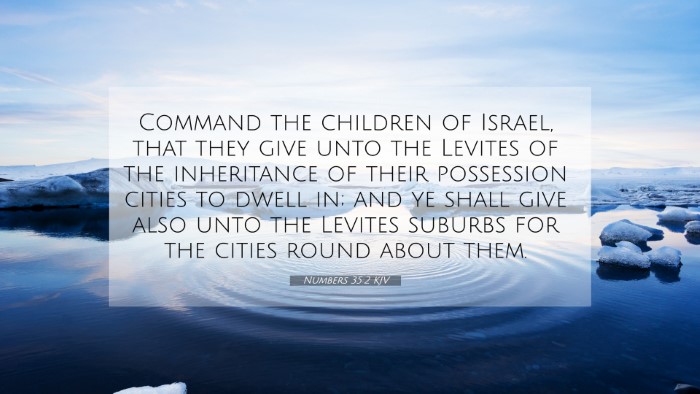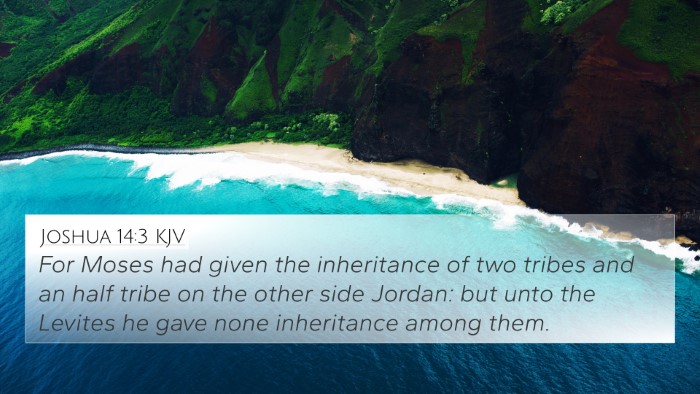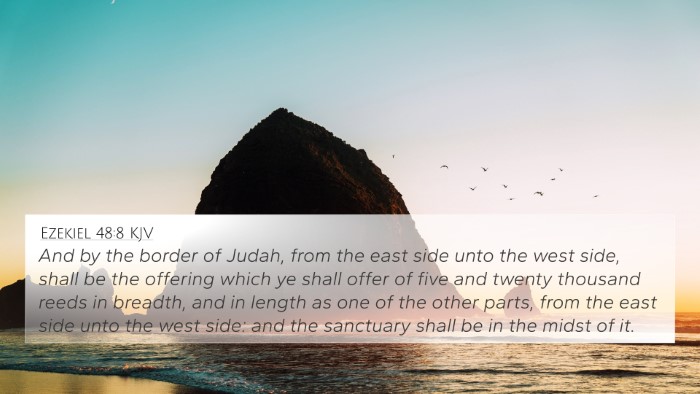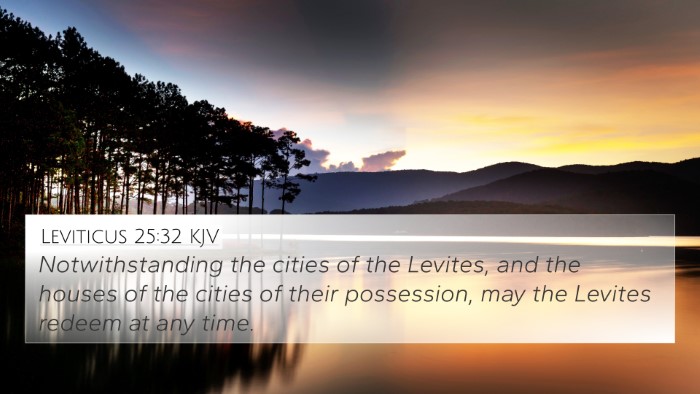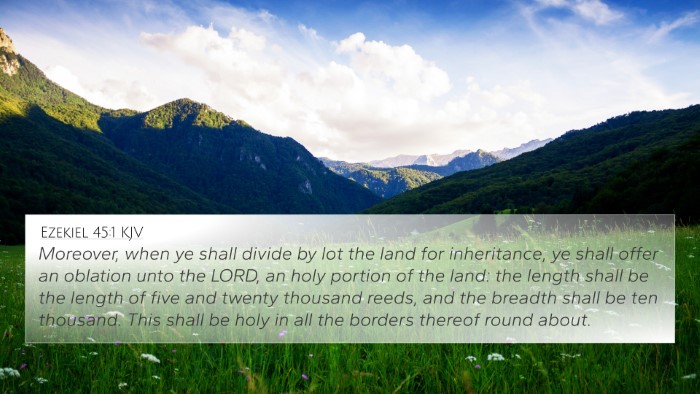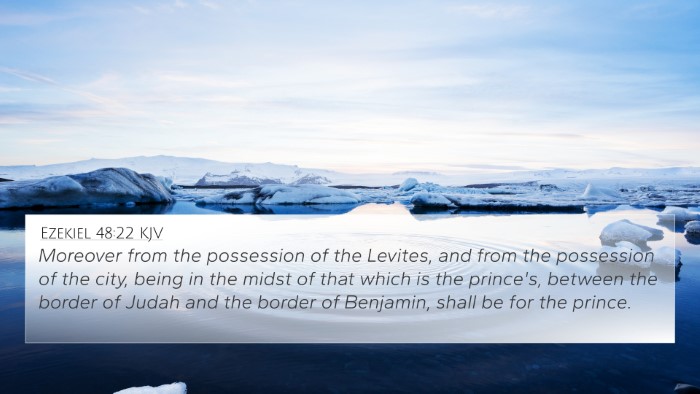Understanding Numbers 35:2
Verse Reference: Numbers 35:2
"Command the children of Israel that they give unto the Levites of the inheritance of their possessions cities to dwell in, and ye shall give unto the Levites suburbs for the cities round about them."
Summary of Meaning
This verse emphasizes God's instruction regarding the allocation of cities and suburbs to the Levites among the Israelites. The Levites, who were dedicated to service in the tabernacle (and later the temple), were not given a specific territory like the other tribes of Israel, but rather cities to live in. This arrangement highlights their unique role in the spiritual governance of Israel.
Commentary Insights
-
Matthew Henry:
Henry notes that this directive underscores the provision God made for the Levites, who devoted their lives to the ministry. He explains the importance of giving them cities, indicating that though they had no land inheritance, they were still integral to the nation's religious and community life.
-
Albert Barnes:
Barnes elaborates on the idea that the Levites were to be dispersed throughout Israel to ensure that all tribes had access to their ministry. This distribution of cities would promote a deeper spiritual influence throughout the nation as Levites could share the law and worship timetables effectively.
-
Adam Clarke:
Clarke explains the significance of suburbs as a provision for the Levites. These suburbs provided not just space for living, but also room for livestock and agricultural activity, hence sustaining their needs. It reflects God’s comprehensive planning in caring for those who serve Him.
Bible Cross-References
Several other scriptures provide context and insights related to Numbers 35:2:
- Leviticus 25:32-34: Discusses the cities of refuge and the Levites’ rights to land.
- Deuteronomy 10:9: Highlights the unique status of the Levites among the tribes of Israel.
- Joshua 21:1-3: Details the cities assigned to the Levites from the lands conquered.
- 1 Chronicles 6:48-49: Chronicles the role and cities assigned to Levite priests.
- Hebrews 7:14: Discusses the priestly line of the Levites and its significance in the New Covenant.
- Numbers 18:20-24: Explains the Levites' provision and role in ministry.
- Malachi 2:4-7: References the duties of the priests and their communication of the law to the people.
Thematic Connections
This passage not only deals with provisions for the Levites but also initiates broader themes within scripture:
- Priestly Functions: Emphasizes how God sets apart individuals for special service and the related obligations.
- Community Care: Reflects on the communal responsibility the Israelites had to support their spiritual leaders.
- Divine Provision: Illustrates God’s care for those who serve Him, ensuring they have physical sustenance through their allocated cities.
Cross-Referencing Biblical Texts
Cross-referencing throughout the Bible reveals how interconnected scripture is, and it aids in understanding the intent and purpose behind commands and narratives such as those found in Numbers 35:2. Here, we can explore:
- Tools for Bible Cross-Referencing: Utilizing a Bible concordance can assist in finding related scriptures.
- Comparative Study: Analysis of similar themes in the Old and New Testaments can provide deeper insights into God’s continuous theme of provision and care.
- Inter-Biblical Dialogue: By linking the roles of the Levites with New Testament teachings about ministry and service.
- Sermon Preparation: These themes can be valuable for preparing sermons that emphasize God’s provision in modern ministry contexts.
Conclusion
Numbers 35:2 provides essential insights into the role of Levites, the nature of their inheritance, and the overarching theme of divine provision. By utilizing tools for Bible cross-referencing, we can enrich our understanding of this verse and draw connections between various scriptural passages, enhancing our overall comprehension of Biblical narratives.
For further study, consider how these themes interrelate in other parts of the Bible and the significance they hold for both ancient and modern readers.
